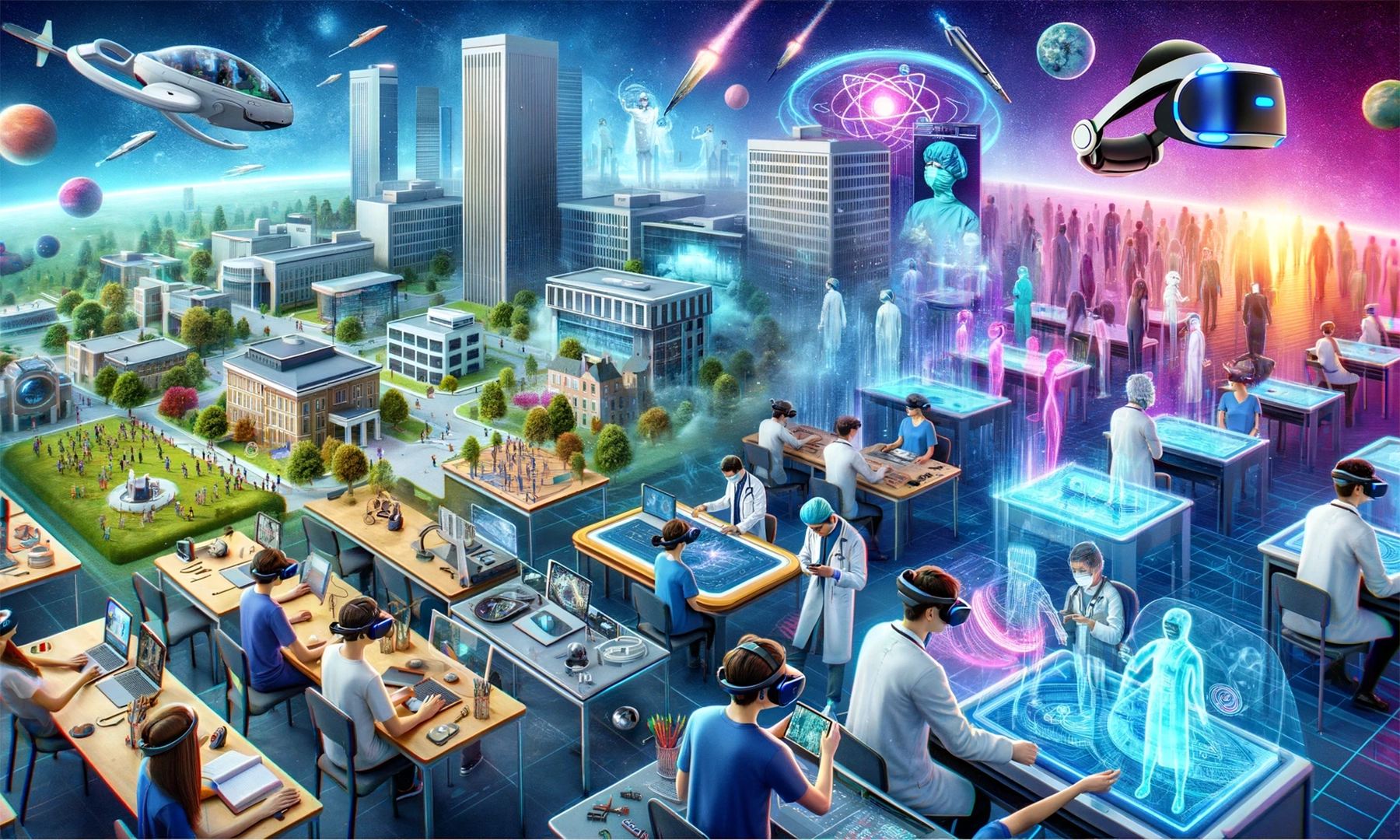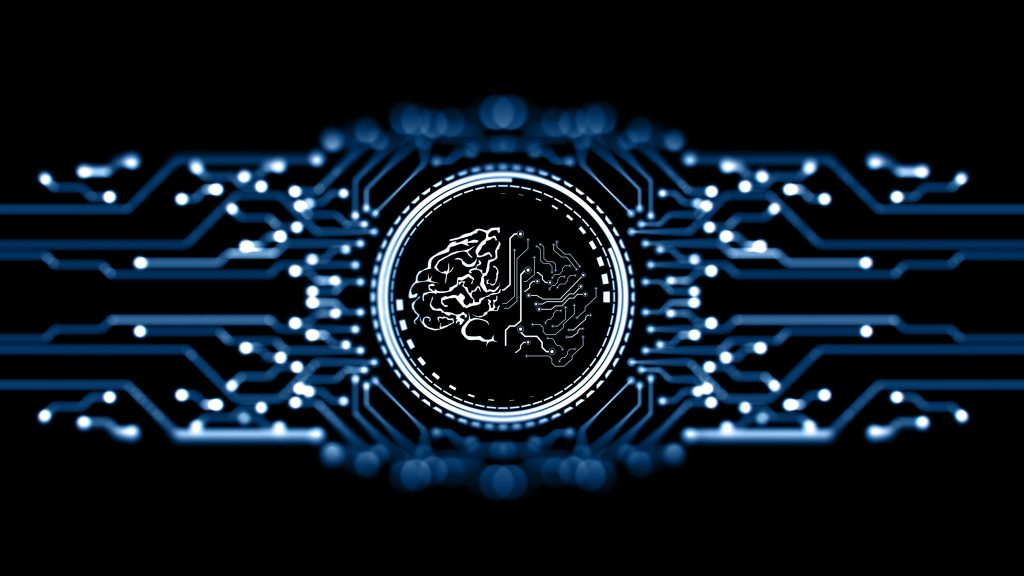In recent years, machine learning (ML), a subset of artificial intelligence (AI), has emerged as a transformative technology, reshaping the way the industry operates and interacts with its customers. By enabling systems to learn from data, identify patterns, and make decisions with minimal human intervention, machine learning is revolutionizing a variety of fields. This paper examines the impact of machine learning in various industries and identifies its uses, benefits, and the future potential of this revolutionary technology.
1. understanding machine learning

Machine learning refers to the development of algorithms that allow computers to learn from data and make predictions and decisions. Unlike traditional programming, where rules are explicitly defined, ML models improve their performance over time as they process more data. This ability to adapt and learn makes machine learning a powerful tool for solving complex problems in a variety of domains.
2. applications of machine learning across industries
2.1. healthcare
Machine learning is having a significant impact on healthcare by improving diagnostic accuracy, predicting patient prognosis, and personalizing treatment plans.
Predictive analytics: ML algorithms analyze historical patient data to predict future health events, enabling proactive intervention and better resource allocation.
Medical Imaging: Deep learning techniques help radiologists identify abnormalities in medical images such as X-rays and MRIs with remarkable accuracy, often surpassing human capabilities.
Drug discovery: Machine learning accelerates the drug discovery process by identifying potential compounds and predicting their efficacy, reducing the time and costs associated with traditional methods.
2.2. Finance
The financial industry uses machine learning to enhance decision making, improve risk assessment, and combat fraud.
Fraud detection: ML algorithms analyze trading patterns and detect anomalies indicative of fraud, enabling real-time alerts and preventative measures.
Algorithmic Trading: Financial institutions utilize machine learning models to analyze market data to optimize investment strategies and make trading decisions based on historical trends and real-time information.
Credit Scoring: Machine learning enhances credit scoring models by incorporating a broader range of data points to improve the accuracy of credit risk assessments.
2.3. retail
In the retail industry, machine learning is revolutionizing customer engagement, inventory management, and personalized marketing strategies.
Recommendation systems: E-commerce platforms use ML algorithms to analyze customer behaviors and preferences and provide personalized product recommendations that enhance the shopping experience and drive sales.
Demand Forecasting: Retailers employ machine learning to forecast product demand based on historical sales data, seasonal trends, and external factors to optimize inventory levels and reduce waste.
Customer sentiment analysis: ML technology analyzes customer reviews and social media interactions to measure sentiment, enabling retailers to adapt their strategies based on consumer feedback.
2.4. Manufacturing
Machine learning is streamlining manufacturing operations, improving efficiency, and reducing downtime.
Predictive maintenance: by analyzing sensor data from machines, ML algorithms can predict equipment failures in advance, enabling timely maintenance and minimizing production disruptions.
Quality Control: Machine learning models analyze production data to identify defects and ensure product quality, reducing waste and increasing customer satisfaction.
Supply Chain Optimization: ML enhances supply chain management by forecasting demand fluctuations, optimizing inventory levels, and improving logistics planning.
2.5. transportation
Machine learning is transforming the transportation industry by improving safety, efficiency, and customer experience. Autonomous vehicles: Machine learning algorithms allow self-driving vehicles to recognize their environment, make real-time decisions, and improve safety by reducing human error.
Route optimization: Logistics companies use ML to analyze traffic patterns and delivery data to optimize routes for fuel efficiency and timely delivery.
Predictive traffic management: ML models predict traffic congestion and suggest alternative routes to improve overall traffic flow in urban areas.
3. benefits of machine learning
The integration of machine learning into various industries offers numerous benefits
Increased efficiency: Automated iterative work and data analysis allows organizations to operate more efficiently and allocate resources more effectively.
Enhanced decision-making: ML models provide valuable insights based on data analysis, enabling informed decision-making and strategic planning.
Personalization: Provide products and services tailored to the preferences of each individual customer to increase satisfaction and loyalty.
Cost reduction: By optimizing processes and reducing errors, machine learning can lead to significant cost savings in a variety of operations.
4. challenges of implementing machine learning
While machine learning has many advantages, there are several challenges to its implementation:
Data quality and availability: Data quality and availability: High-quality, relevant data is necessary for successful machine learning models. Organizations must invest in data collection and management to ensure the effectiveness of ML initiatives.
Skills Gap: A lack of skilled professionals with expertise in machine learning and data science makes it difficult for organizations to effectively implement ML solutions.
Bias and Ethics: Machine learning algorithms can inadvertently perpetuate biases present in training data, leading to unfair results. Ensuring ethical practices in data handling and algorithm development is essential.
Integration with legacy systems: many organizations struggle to integrate machine learning solutions with their existing systems and processes, requiring careful planning and investment.
5. the future of machine learning
As technology advances, the future of machine learning also looks promising:
Explainable AI: There is a growing focus on developing explainable AI models that provide transparency in decision making and allow users to understand how algorithms reach their conclusions.
Edge computing: the rise of edge computing will allow machine learning models to process data closer to the source, reducing latency and improving real-time decision-making capabilities.
Increased automation: As machine learning algorithms become more sophisticated, their ability to automate complex tasks will continue to expand, transforming workflows across industries.
Interdisciplinary collaboration: the future of machine learning will enhance collaboration among data scientists, domain experts, and business leaders to drive innovation and successful implementation.
CONCLUSIONS.
Machine learning is undeniably revolutionizing the industry by increasing efficiency, improving decision making, and enabling personalized experiences. As organizations continue to embrace this transformative technology, the potential for innovation and growth is immense. While challenges remain, the continued development of machine learning will drive significant advances across sectors and ultimately reshape the way we live and work. There are exciting possibilities for a future in which industry will leverage machine learning to address complex challenges and unlock new opportunities.












